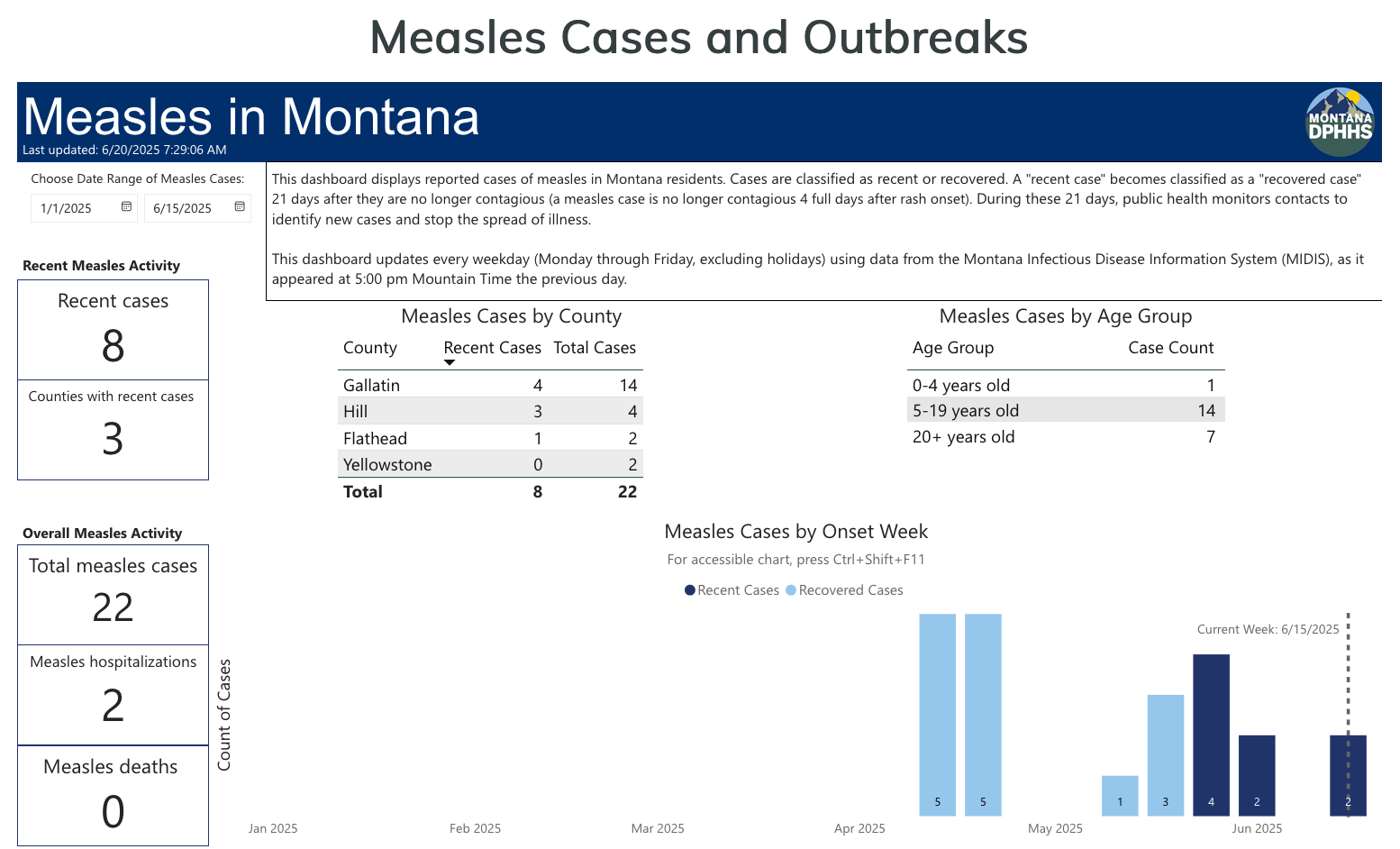Total Measles Cases in Montana Rise to 22; There are 8 Recent Cases in 3 Counties
Gallatin, Hill and Flathead counties have recent cases; Yellowstone County has none, despite a recent report of an infected traveler moving through Billings Logan International Airport
By Denise Rivette
Despite a Daily Montanan June 17 report of a traveler infected with measles passing through the Billings Logan International Airport on May 26, Yellowstone County is the only county of the four affected by the current outbreak to report no recent measles cases. As you can see in the table below produced by the Montana Department of Health and Human Services, 14 of the 22 (64%) cases in Montana affected those 5 to 19 years old and 2 of those 22 affected were hospitalized.
According to Daily Montanan reporting:
Measles symptoms include fever, cough, runny nose, red/watery eyes, spots in the mouth, or a rash that begins on the face and spreads down to the rest of the body.
Measles is very contagious. It spreads through the air when an infected person coughs or sneezes. You can get measles just by being in a room where a person with the virus has been. This can happen even up to two hours after that person has left. It is so contagious that if one person has it, 9 out of 10 people around that person will also become infected if not vaccinated. An infected person can spread measles before he or she develops symptoms – from four days before developing the measles rash through four days afterward.
“Vaccination is the best form of prevention against measles,” said Jon Forte, Yellowstone County Health Officer, President and CEO of RiverStone Health. “Two doses of the vaccine are 97% effective at preventing infection, which is key to keeping the spread of measles low.”
For full protection, two doses of the Measles-Mumps-Rubella (MMR) vaccine are recommended, the first at 12 months of age and a second dose from age 4-6.
People who are unvaccinated are at a higher risk of being infected with measles and spreading it to others. They may spread measles to people who cannot get vaccinated because they are too young or have specific health conditions.
People who are vaccinated do have a small risk of getting and spreading the disease, but the symptoms are usually milder.
Because measles is highly contagious, anyone who is not vaccinated and thinks they may have been exposed should stay home and call their healthcare provider for further information about testing and how to avoid exposing others.




